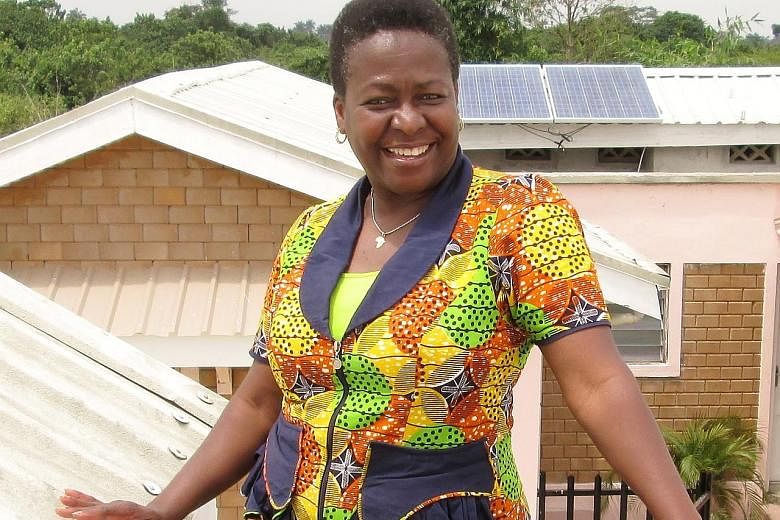NIGERIA • The Nigerian population is growing faster than the country's ability to build new housing. Today, more than 80 per cent of its people live in substandard housing conditions, and many lack access to electricity.
In response, architect and social entrepreneur Chinwe Ohajuruka has launched a company called Comprehensive Design Services, which provides affordable houses with reliable, renewable energy and clean water.
Between 2013 and 2015, the company built 12 housing units in Port Harcourt, Nigeria's oil capital.
"People's lives have changed for the better because eight families now live in decent homes with access to clean water, improved sanitation and renewable energy," Ms Ohajuruka said.
The group is currently preparing to build another multi-housing development.
Ms Ohajuruka explained that the technique, called Bio-Climatic Design, is quite simple.
"It means designing and engineering the buildings to suit the climate by going back to first principles: keep out the sun, rain and insects; maximise natural ventilation and natural lighting; raise the building off the ground for flood prevention and control, and capture rainwater where possible."
Water comes from underground boreholes, pumped using solar power.
Initially funded with a grant from the United States development agency, USAID, and Western Union Foundation, the company is now working to raise funds from the private sector.
Its houses typically cost between 25 and 50 per cent less to build, and consume 50 to 75 per cent less energy. But she added: "I am of the opinion that we have to do much more if we hope to close the 17 million housing unit deficit. Sustainable thinking will have to be deployed on a massive scale."
Over the long term, her goal is to replicate the model across Sub-Saharan Africa.

